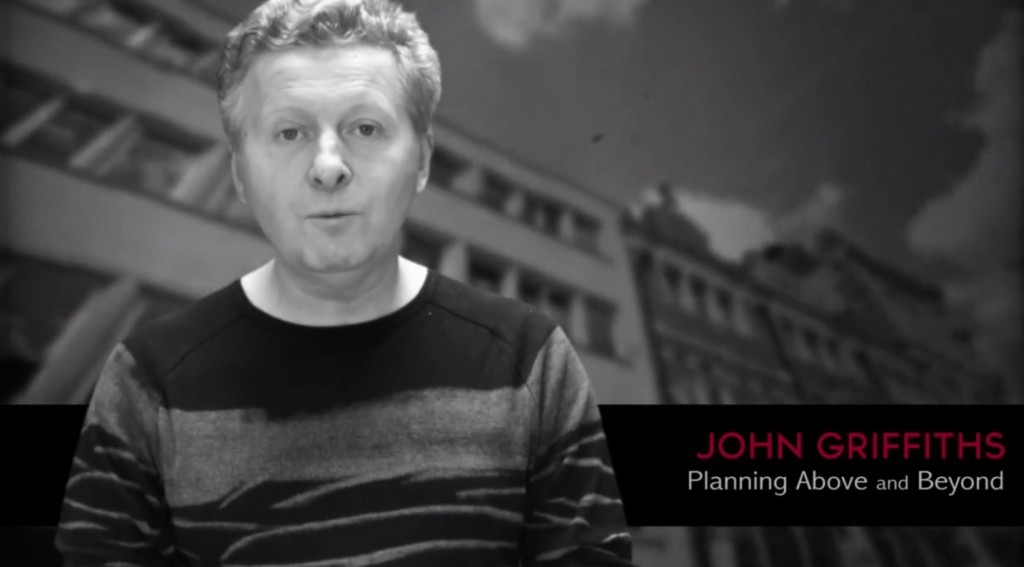
This newsletter was originally published via email on the 17th April 2016. You can also sign up to receive Ice Cream Sundae with the form on the right-hand side column or here (The newsletter format shifted from long to shorter form since).
Early in my career, I worked as a production manager for Landmark Worldwide in Paris.
It’s an international personal and professional growth, training & development company.
I first did an adapted version of their flagship course, the Landmark Forum, for young people when I was 9 years old.
I don’t remember that much of it now. The chairs were kind of uncomfortable, and I loved the giant peanut butter cookie I had at lunchtime.
I’ve been considering writing a Sundae series about my experiences with Landmark Worldwide for a little while now.
They offer courses for individuals and businesses, the main intention being that participants create new possibilities for success, fulfilment and greatness, whatever their goals may be.
Over 2.4 million people have participated in Landmark programmes from around the world.
The Landmark Forum is a practical enquiry into what it means to be human, questioning areas we all have in common like how we listen, how we relate to our family or colleagues, or what we complain about. It offers a methodology to achieve personal and professional results beyond what looks usual and predictable.
Many celebrities, authors and famous business people have talked about the benefits they received from these courses, like Neil Patrick Harris, Chuck Pahlaniuk, Michael J Parker or Peter Diamandis (in this episode of the Tim Ferriss Show).
Their business branch is called Vanto Group and their client list boasts names like Apple, Reebok, ExxonMobil, GSK, Microsoft, NASA and JP Morgan Chase. Paul Fireman, former CEO of Reebok, said the company’s price stock jumped “from the $6 or $7 range to $25 to $30 range” after he introduced his employees to the Landmark training.
From my perspective as a marketing & brand strategist, it’s interesting that for the most part Landmark successfully relies on word of mouth marketing.
Word of mouth marketing is the most valuable, cost effective and most likely to drive sales form of marketing.
According a recent Nielsen market research study, recommendations from friends and family remain the most credible form of advertising globally. 83% of respondents across 60 countries say they trust the recommendations of friends and family.
To improve your own word of mouth marketing you need to build a foundation for it, bake it in your product or service (to steal the words from Alex Bogusky and John Winsor from their excellent book, Baked In: Creating Products and Businesses that Market Themselves).
Word of mouth marketing is only as good as the quality and trust customers place in your product, service and brand.
In the case of Landmark, I admire the fact this seems to be designed in from the ground up. When I get great results or achieve new goals in life I naturally talk about it with my friends and family.
For example, I stopped smoking while doing a course with Landmark in Singapore a couple of years ago. I told people around me that I’d stopped smoking, they’d ask me how and so I’d talk about the course and recommend it.
The tried and traditional approach to increase word of mouth marketing is simply asking customers to recommend your products and services.
Landmark is open about the fact that participants are going to be encouraged to participate in another course or invite friends to find out about the Forum.
I’ve participated in a number of Landmark courses; I always learn a lot and receive great value from them.
My mother first participated in these kinds of courses in the late 70s and 80s. If you’ve watched the TV show The Americans, you might have heard Susan Misner’ character Sandra Beeman mention going to her “EST course”. EST stood for Erhard Seminars Training and got pretty big in the United States then. Big enough to be mentioned in a TV show produced now, anyways.
It was designed and founded by Werner Erhard, recently dubbed “The Father of Self-Help” in a New York Times article. As explained in the article above, a controversial episode of the 60 Minutes TV show in the US destroyed Werner Erhard’s reputation in 1991. He stepped down and sold the company to a group of employees who rebranded it as Landmark.
All the controversial content from the show was later proven to be false. According to this other cited article, that 60 Minutes episode was so riddled with discrepancies that CBS deleted it from their public archive.
Growth, training & development companies and performance coaching has been going mainstream in the past 10-15 years.
I talk about Landmark courses and what I get out of them in any number of situations from job interviews to board level client meetings and conversations with friends.
I had lunch with a professional acquaintance just a few months ago and we talked about how interesting it is that openly talking about this kind of performance coaching, training and development used to be a little taboo, while now it’s pretty much accepted across the board.
Meanwhile, other people aren’t interested in this stuff and that’s fine, of course.
What’s less fine by me is when people, or more often the media, go as far as discrediting and slandering this type of work with little to no evidence.
I’m absolutely for objective criticism and rational discussion for everything, including Landmark or their courses.
I trust if you’ve been reading this far you’re smart enough to evaluate this story rationally.
In 2004, a prime time investigative journalism show called “Pièces à Conviction” aired an episode about Landmark. The episode was titled “Voyage au Pays des Nouveaux Gourous” (“Journey to the land of new gurus”).
I was working for Landmark in Paris at the time. We were 4 employees in the Paris office, and we had just moved to a smaller office to save money on operating expenses.
About 2-3 days before the show was programmed to air we received a call from the production company in charge. That’s when we first learned about it.
I think they were legally obliged to tell Landmark they were airing a piece, though I understand they waited the last possible minute to call. No representative from Landmark was invited to participate.
We learned a guy had been filming with an undercover camera for the past 4 to 6 months.
He’d done a few different Landmark courses and came by the office regularly too.
We all thought he was a nice guy, I’d chatted with him a few times.
To this day, I have a hard time believing he really thought there was anything particularly controversial going on in the office or in the course rooms.
A few days later we gathered to watch the show in the office. I was hoping the show would be objective, but the chances seemed fairly slim.
As soon as the Halloween style horror music kicked off, it was pretty obvious they didn’t have rational criticism in mind.
For more on this, this excellent episode of Film Riot explains how music can shape and manipulate a film scene for the audience.
Additional visual editing elements included coloured image overlays with targets. I think this was because the vast majority of hidden camera content wasn’t particularly exciting or offensive (people talking about their lives in a hotel room or in the Landmark office), so they had to ramp up the excitement factor somehow.
Suffice to say the whole show was highly critical of Landmark and its activities.
At some point in the show, I recognised myself with one of those black labels over my eyes, hiding my identity as effectively as glasses hide Superman when posing as Clark Kent.
At 24 years old, I was devastated to see myself on TV, suspected of being some kind of weird cult guru.
It is one of the saddest and most insulting experiences I’ve ever had.
If I remember correctly all I was doing was talking to the undercover camera guy about his career because he’d asked for coaching. At worst I was doing my job and promoting a course.
It wasn’t a very long scene, nor was I the main target of the show.
Still, definitely not an experience I wish on anyone.
I’ve never been the guru of anyone or anything in my life.
If you know me at all, you realise how ludicrous that idea is.
I’m certainly not saying Landmark is perfect. I really don’t think anyone or any company is perfect anyway.
All I’m saying is I can vouch for the quality of their courses from my personal experience as a participant and former employee. If ever you have any questions about it, I’m always happy to talk.
The damage from the 2004 French TV show about Landmark is done but I hope there will be more chances for balanced and objective reviews of their courses in France in the future.
Fortunately it’s not all doom and gloom. Trustworthy media outlets such as The Guardian, The New York Times, Huffington Post, Psychology Today, Forbes,The Wall Street Journal and many more have published objective articles and reviews about Landmark courses.
Thanks for reading, as always I really appreciate your time and attention. I hope you enjoyed it!
Whilst we’re on the topic of word of mouth marketing, please share this with a friend 😉
To finish on a completely different note, if you want to check out more Ice Cream stuff this week on the podcast I had a fun conversation with Tom Williams, the founder of A Door in a Wall, a London based murder mystery treasure hunt gaming events.
Till’ next week!
Cheers
Willem



